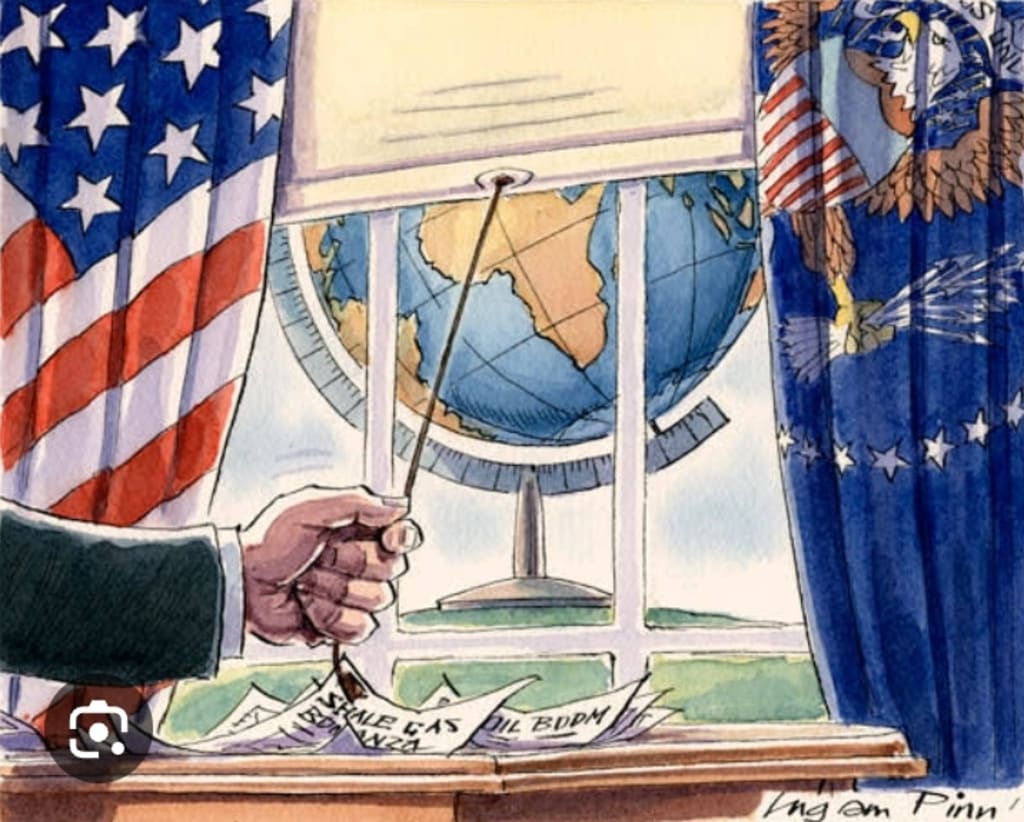Content warning
This story may contain sensitive material or discuss topics that some readers may find distressing. Reader discretion is advised. The views and opinions expressed in this story are those of the author and do not necessarily reflect the official policy or position of Vocal.

Title: Pondering the Shift: Exploring Potential Paths for the United States to Transition Away from Supremacy
Introduction:
For decades, the United States has held the coveted position of a global superpower, exerting its influence across diverse realms. However, examining the possibility of the United States relinquishing its superpower status and transitioning into a more equitable global landscape poses intriguing questions. In this article, we will explore potential strategies and factors to consider in this hypothetical journey.
1. Multilateral Collaboration:
To facilitate a shift away from dominance, the United States could actively engage in multilateral organizations and forge stronger alliances. By promoting shared goals, contributing resources, and fostering global cooperation, the United States can lay the groundwork for a more balanced global power structure.
2. Promotion of Multifaceted Influence:
Rather than solely relying on military might, the United States can leverage its soft power, characterized by cultural, educational, and economic influence. Strengthening these aspects can create positive relationships while projecting a favorable image without resorting to military intervention.
3. Redefining National Security:
Shifting the focus from solely military priorities to holistic security considerations can facilitate a smoother transition. Placing emphasis on addressing global challenges such as climate change, cybersecurity, and pandemics helps build trust and cooperation while promoting collective well-being.
4. Fair Trade and Economic Cooperation:
As a superpower, the United States holds significant economic influence, making reconsideration of trade policies essential. Prioritizing fair and mutually beneficial trade agreements, supporting emerging economies, and fostering inclusive economic growth can contribute to a more balanced global economy.
5. Embracing Multipolarity:
Acknowledging the rise of other global powers is crucial in relinquishing superpower status. The United States can actively engage emerging powers like China, India, and Russia, seeking opportunities for collaboration and shared decision-making. Embracing multipolarity promotes a balanced global order and ensures diverse global perspectives.
6. Internal Priorities:
Transitioning away from superpower status offers an opportune time for the United States to address internal challenges and invest in domestic issues. By tackling inequality, enhancing education, healthcare, and infrastructure, and promoting sustainable development, the nation can set dness, cyber warfare, and economic stability. Collabuperpower status could involve reassessing trade policies, supporting fair and balanced agreements, and considering the needs of emerging economies. Engaging in responsible economic practices can promote economic growth globally and avoid excessive economic disparities.
5. Engaging Emerging Powers:
Acknowledging the rise of emerging powers is crucial in achieving a more balanced global landscape. The United States can engage in strategic partnerships and collaborations with countries such as China, India, Brazil, and Russia. Encouraging avenues for cooperation and mutually beneficial relationships can foster a more inclusive and multipolar world order.
6. Domestic Focus:
Transitioning from superpower status may offer an opportunity for the United States to shift attention and resources towards domestic issues. By addressing socio-economic inequalities, investing in education, healthcare, infrastructure, and renewable energy, the country can become a model for sustainable development and social progress.
7. International Cooperation:
To successfully navigate the transition, the United States would need to engage in transparent and open dialogue with other nations, seeking their input and cooperation. Building trust, negotiating fair agreements, and aligning goals with global partners will be essential in achieving a smooth and peaceful transition.
Conclusion:
The idea of transitioning from a superpower to a more balanced global landscape is purely speculative. However, this article provides a broad overview of potential strategies that could contribute to a hypothetical transition. Ultimately, the decision to end superpower status rests on policymakers, public opinion, and global dynamics. Striving towards a more balanced global order can foster cooperation, inclusivity, and shared responsibility, ensuring a more prosperous and peaceful future for all.
Conclusion:
While contemplating the end of the United States' superpower status is purely hypothetical, examining potential pathways allows us to envision a more balanced global landscape. By actively engaging in multilateralism, promoting multifaceted influence, redefining security, fostering fair trade, embracing emerging powers, addressing internal priorities, and engaging in responsible diplomacy, the United States can embrace a transformative shift. However, it is essential to remember that such a transition requires careful planning, cooperation among nations, and alignment with global dynamics. Charting a course beyond supremacy can bring forth a world marked by collaboration, inclusivity, and shared responsibility, leading to a brighter future for all.





Comments
There are no comments for this story
Be the first to respond and start the conversation.